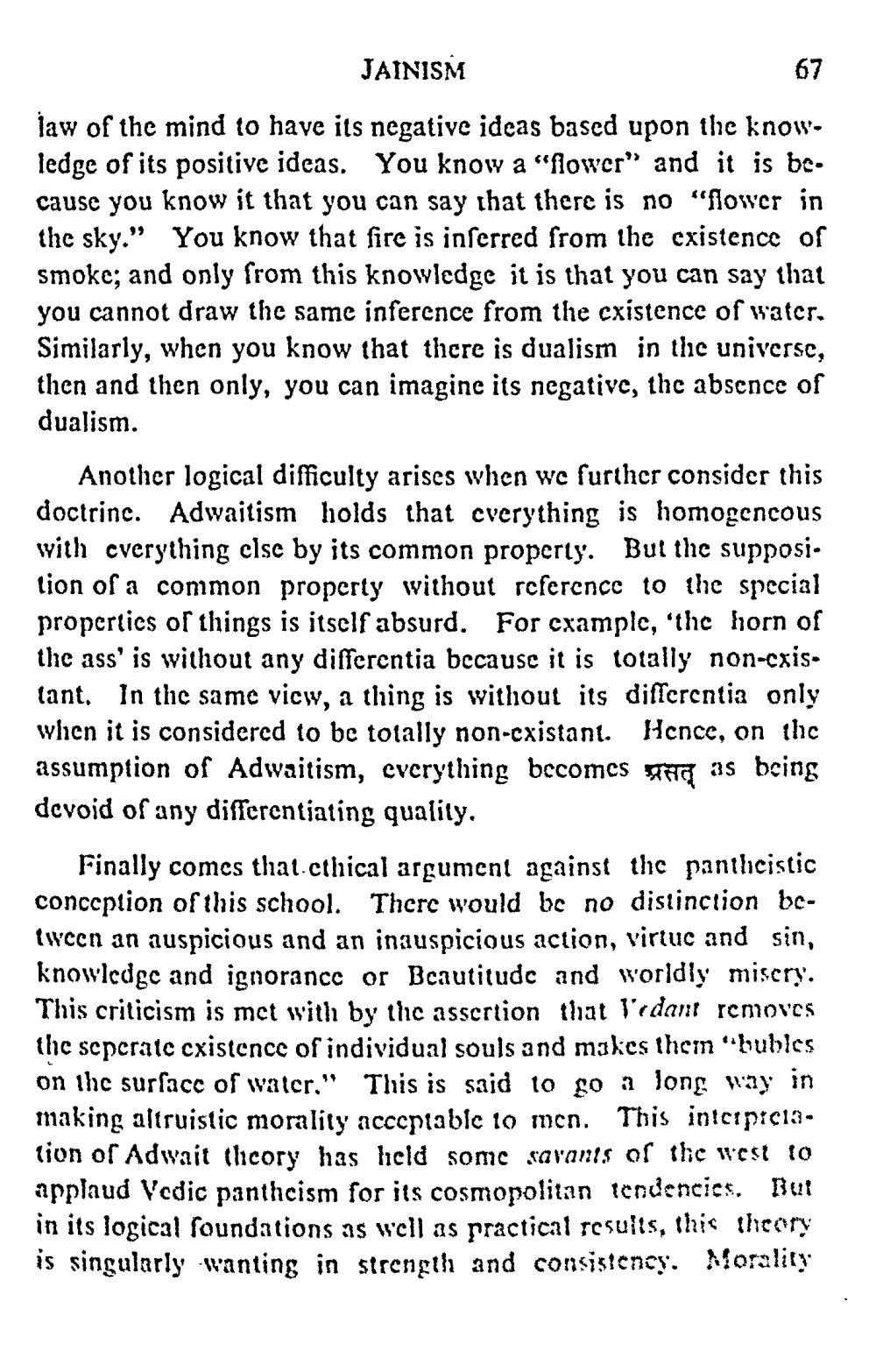________________
JAINISM
67
law of the mind to have its negative ideas based upon the knowledge of its positive ideas. You know a "flower” and it is because you know it that you can say that there is no "flower in the sky.” You know that fire is inferred from the existence of smoke; and only from this knowledge it is that you can say that you cannot draw the same inference from the cxistence of water. Similarly, when you know that there is dualism in the universe, then and then only, you can imagine its negative, thc absence of dualism.
Another logical difficulty arises when we further consider this doctrinc. Adwaitism holds that cverything is homogencous with cverything clse by its common property. But the supposi. tion of a common property without reference to the special properties of things is itself absurd. For example, 'the horn of the ass' is without any differentia because it is totally non-existant. In the same vicw, a thing is without its differentia only when it is considered to be totally non-cxistant. Hence, on the assumption of Adwaitism, everything becomes gna as being devoid of any differentiating quality.
Finally comes that.cthical argument against thc panthicistic conccption of this school. There would be no distinction bctween an auspicious and an inauspicious action, virtuc and sin, knowledge and ignorance or Beautitude and worldly miscry. This criticism is met with by the assertion that l'edant removes the scpcratc cxistence of individual souls and makes theın bubles on the surface of water." This is said to go a long way in making altruistic morality acccriabic 10 men. This intcrpic1alion or Adwait theory has held somc savants or the west 10 applaud Vedic panthcism for its cosmopolitan icndencick. But in its logical foundations as well as practical results, this theory is singularly wanting in strength and consistency. Morality




